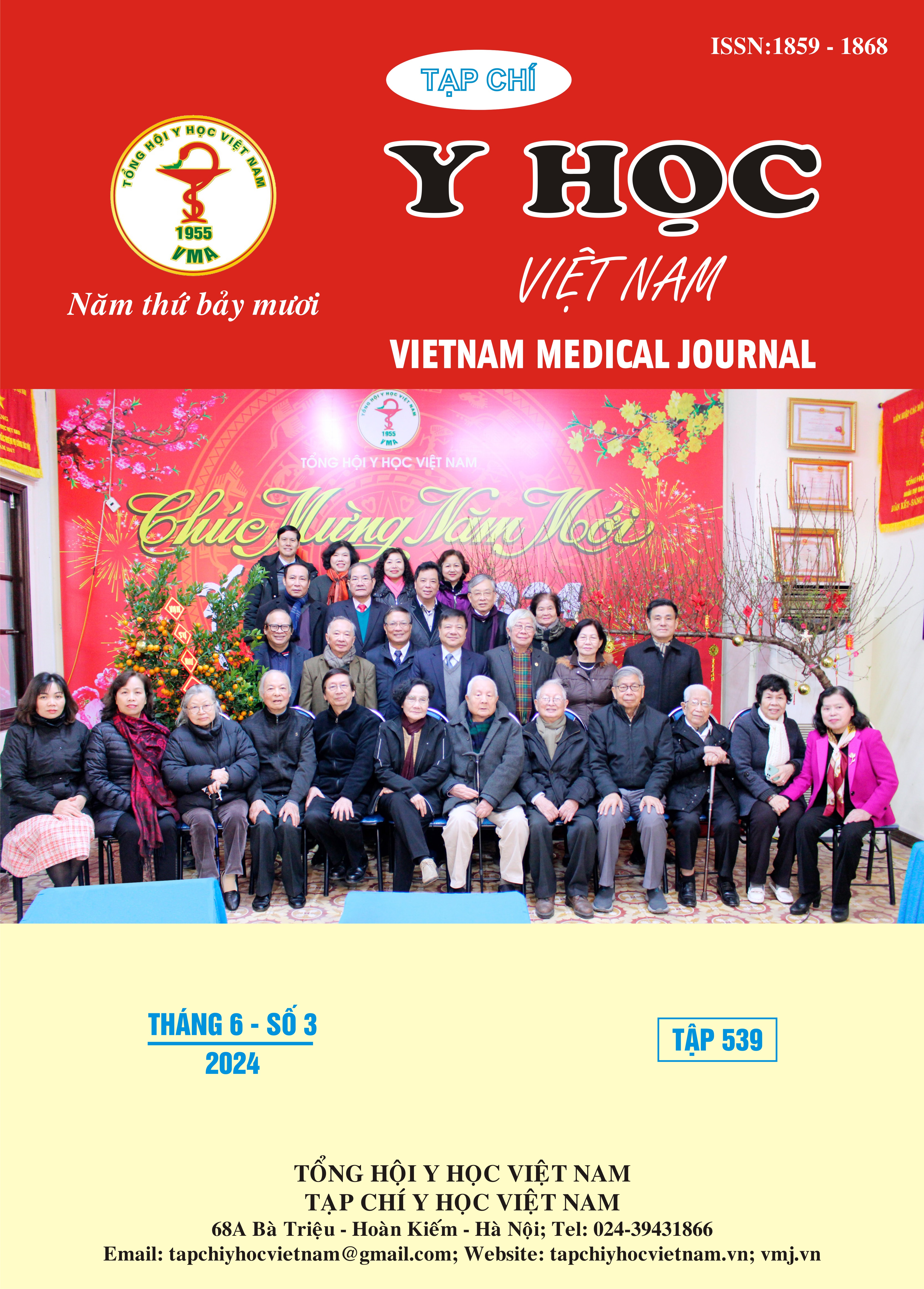EFFECTIVENESS OF HEALTH EDUCATION FOR CAREGIVERS REGARDING ORAL FEEDING-RELATED ASPIRATION PREVENTION ON PATIENTS WITH RISK FACTORS
Main Article Content
Abstract
Background: Caring capacity affects the physical and mental health of both patients and caregivers. Chronic disease education and proper health care practices are key to preventing events. Objective: Evaluate the effectiveness of health education for caregivers on aspiration prevention when assisting with oral feeding. Subjects and Methods: The health education intervention package will be implemented from April 2023, to September 2023 with participants being family members who directly take care of the patient (caregivers). This disease belongs to the group of risk factors for aspiration when eating orally at the eight inpatient departments of Ho Chi Minh City University of Medicine and Pharmacy Hospital. Results: After health education, the rate of adequate knowledge increased from 31.0% to 96.4%; concern about preventing aspiration when eating through the mouth increased from 65.5% to 82.4%; and correctly following instructions increased from 74.8% to 96.2%. Conclusion: The Health Education package includes materials to prevent aspiration when eating by mouth. Direct health education using the teach-back method is effective in preventing aspiration when eating by mouth for caregivers of patients at risk.
Article Details
Keywords
choking when eating by mouth, caregivers, health education
References
2. Ying J, Wang Y, Zhang M, et al. Effect of multicomponent interventions on competence of family caregivers of people with dementia: A systematic review. J Clin Nurs. May 2018;27(9-10):1744-1758. doi:10.1111/jocn.14326
3. Rangira D, Najeeb H, Shune SE, Namasivayam-MacDonald A. Understanding Burden in Caregivers of Adults With Dysphagia: A Systematic Review. Am J Speech Lang Pathol. Jan 18 2022;31(1): 486-501. doi:10.1044/2021_ajslp-21-00249
4. Garvelink MM, Ngangue PA, Adekpedjou R, et al. A Synthesis Of Knowledge About Caregiver Decision Making Finds Gaps In Support For Those Who Care For Aging Loved Ones. Health Aff (Millwood). Apr 2016;35(4): 619-26. doi:10.1377/ hlthaff.2015.1375
5. Schindler A, Ginocchio D, Ruoppolo G. What we don't know about dysphagia complications? Rev Laryngol Otol Rhinol (Bord). 2008;129(2):75-8
6. Mack A, Hildebrand M. Interventions for Caregivers of People Who Have Had a Stroke: A Systematic Review. Am J Occup Ther. 2023 Jan 1;77(1): 7701205180. doi: 10.5014/ajot. 2023.050012. PMID: 36795373.
7. Trần Thị Thanh Tâm. Đo lường khả năng đọc hiểu thông tin sức khỏe của người bệnh nhập viện tại Bệnh Viện Thống Nhất năm 2018. Tạp chí Y học TPHCM, 2019;3 (77): 264 - 268
8. Correa B, Leandro Merhi VA, Pagotto Fogaca K, Marques de Oliveira MR. Caregiver's education level, not income, as determining factor of dietary intake and nutritional status of individuals cared for at home. J Nutr Health Aging. 2009 Aug;13(7):609-14. doi: 10.1007/ s12603-009-0171-1. PMID: 19621196.


